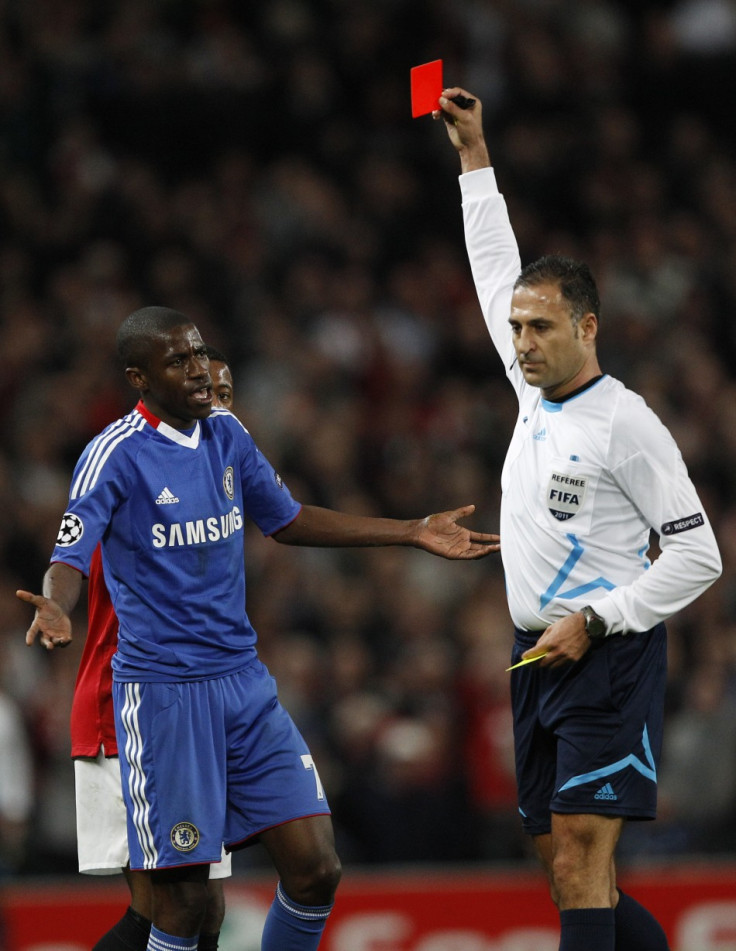A lack of Respect for rules at the Football Association

Sir Alex Ferguson and Carlo Ancelotti were given only a warning yesterday for breaching a Football Association rule about making media comments about a referee in the build up to a game, displaying a puzzling flexibility for rules and regulations at the English football's governing organisation.
The comments were both unusually complimentary about the Man in Black, a career that could surely be up there with the Traffic Warden for abuse received, but nonetheless these comments have an obvious motive and they have the ability to influence the put upon official, so should rightly be banned.
Ancelotti said:
"We are getting the best referee, there is no doubt about that. But [getting a bad decision] is definitely our big fear. We have the players to do it all right. We just hope it's our turn for a little bit of luck."
Meanwhile Ferguson gushed with praise:
"Howard Webb is a fantastic referee, he has experience, he has skills, but this is football and sometimes when things are not good you speak about the bad decisions against you."
According to The Independent, Ferguson's comments were described as a "clear breach" and, later on, a "minor breach"." Now they are simply a warning to managers not to make these comments in the future. It seems bizarre to have a rule, clearly labelled E3 in the FA Handbook 2010-11 for all to see, if it is then to be cast aside so easily.
Not just a kickabout
Professional football is not a kickabout in the park, no matter how much of that it inspires, it's an enormously profitable global industry. Any club at the top level is a business fighting to gain the slightest advantage over rivals and therefore needs rigorously enforced laws to keep competition fair.
At best it makes the FA seem toothless, at worst it makes it seem as though the bigger teams in the league have undue influence of the outcomes of disciplinary cases.
It's easy to use Ferguson and United as an example because the club's size and ambition frequently tests the FA resolve.
The Premier League title winning game against Blackburn Rovers, a relatively uneventful match, was marred by the response of the players from both sides to Hernandez's penalty claim, which levelled the scores at one - one.
Players from both sides surrounded and harangued the referee and his assistant over the claim and this was puzzling because of the Respect campaign. The Respect campaign is a great idea which has apparently reduced cautions for dissent across the top four professional leagues but didn't seem to be working here.
For quite a long time, people have argued that football should be more like rugby and that only the captain should be allowed to speak to the referee about on-pitch issues. The rugby referees have an almost amusing comparative authority to a football referee where players often twice their size/width will duly accept their decisions largely without visible displays of emotion and anger.
On the FA website it says: "As part of the Respect programme, there are a number of changes to the matchday procedure which will apply to the professional game this season" and one of these is that "the referee will work with both team captains to help manage behaviour during the game".
Lack of respect
Sometimes this happens, sometimes in the case of last weekend, it doesn't. According to a statistic on the FA Respect website "referee numbers are up 7.4 per cent year-on-year". But the fact is that a "campaign" is not going far enough.
Isn't a campaign normally conducted by a group or organisation that doesn't actually set the rules? Strict rules and sanctions are needed to curb competitive rule-bending and the governing body can instigate this.
At least part of the point of the Respect campaign is to encourage good behaviour in grass roots football. If players at the top of the game have little disincentive not to ignore the campaign, and are not seen to be punished for acts that the game is trying to banish, then it won't have much effect.
Respect can happen, but only when the governing body decides to command it.
© Copyright IBTimes 2025. All rights reserved.

















